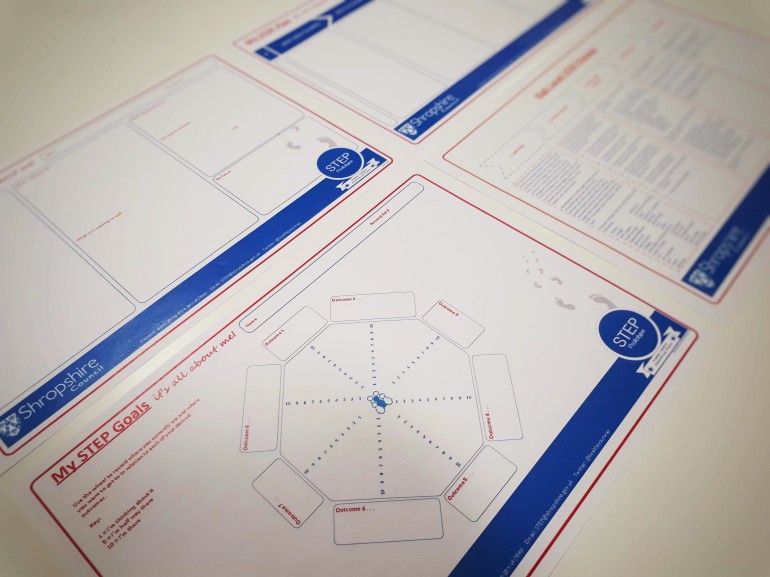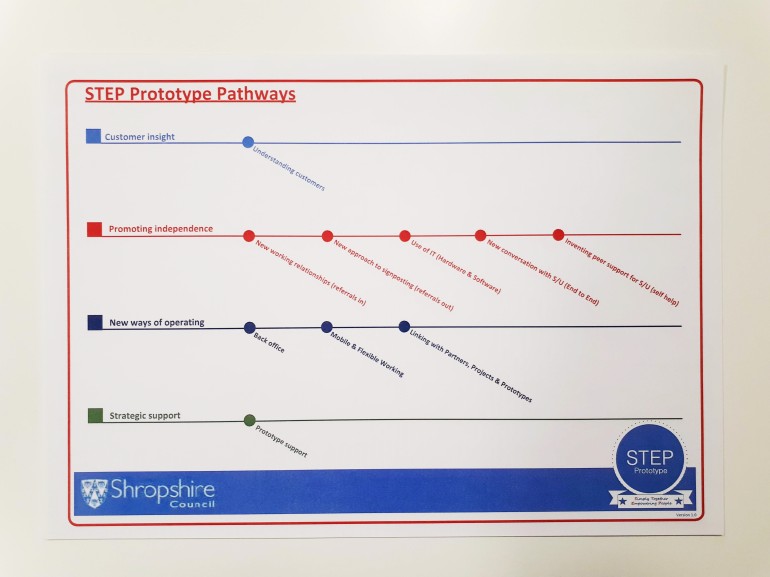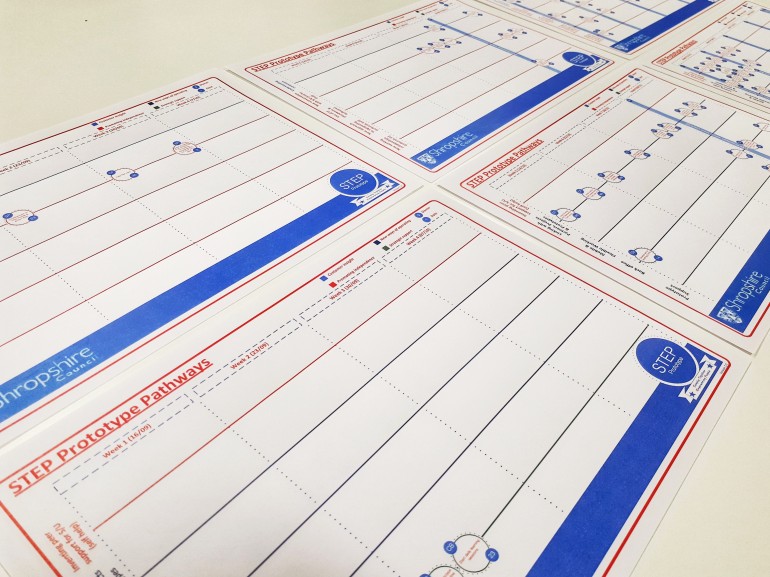Project: STEP
Client: Shropshire Council
Sector: Social Care
Role: Design Lead
Design Brief: The design brief for this work was to look at ways in which the adult social care system could be improved in order to provide a better customer experience at a lower cost to the Council. The design brief was open enough to allow the project team to be as creative as they wanted to be; The Director of Adult Social Care gave us only one strict stipulation – stay legal!
What I did: I provided lead design direction as part of a three-strong project support team, which also included a project manager and one other designer. As a project support team, we embedded ourselves within a team of 5 frontline practitioners who were hand-picked by a lead practitioner who was herself personally appointed by the Director of Adult Social Care. None of the practitioner team had managerial responsibility in their day to day roles as Social Workers and Social Work Assistants and were all working in front-line services at the time of selection. The duration of the project was 13 weeks, starting with an immersive week of discovery which included stepping the practitioner team through light ethnography, contextual interviews, customer journey mapping, persona creation, and service blueprinting. During the second week of the project, a focus was placed on forming the team, which included team-building activity, workshops and a project branding exercise. I lead the branding activity which included defining a set of design principles as well as supporting the practitioner team to come up with a name and a visual identity for the work; this proved to be an important factor in consolidating team buy-in and laying the foundations for the design work that would follow. For the next eleven weeks, I provided lead design direction as we moved the team through an iterative process of live prototyping. Taking inspiration from the ethnography conducted in week one, the practitioner team immediately discarded the 30+ page assessment form in favour of a human-centred design approach which felt more like a conversation than an assessment. As a support team, we provided constant reassurance to the practitioner team, facilitating daily reflection sessions, and supporting them to design and develop an entirely new approach to case management, which included a new 5-page alternative assessment and monitoring form. I lead the practitioner team through a one-day coaching workshop in order to equip them with a new set of skills which supported the less transactional person-centred approach we had designed together. The work of the project team was communicated to the client through regular catch-up meetings and weekly infographics, which I designed along with a range of other project documentation in-line with the overall visual brand.
Outcomes: The learning derived from the STEP project was a contributing factor in enabling Shropshire Council to reduce the per-head cost of adult social care for the over 65’s by 31% (1) whilst also being highlighted in a CQC (Care Quality Commission) report as the best performing council. (2)
References:
(1) The Cost of Care – BBC News
(2) Insights from Care Quality Commission Inspections – Caring Homes Group
STEP Prototype documents including prototype summary.
STEP Prototype coaching tools.
STEP Prototype project management pathway document – Project streams and milestones.
STEP Prototype project management pathway document – Project milestone detail.
STEP Prototype project management pathway document – Project streams, milestones and action bubbles.

STEP Prototype project communication wall showing weekly updates during the prototype period.




